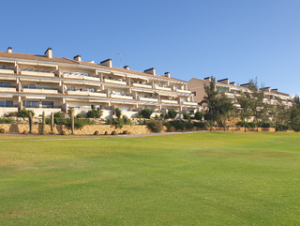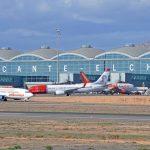Spain’s Urban Communities – understand the basics
Living in one of Spain’s vibrant urbanisations is a unique experience. However, along with the joys come certain responsibilities. It’s a delicate balance of community benefits and individual rights.
The Purpose of Comunidad de Proprietarios
Spain’s urban areas house numerous Comunidad de Proprietarios – a gathering of property owners ensuring that the shared elements of the community, like swimming pools and gardens, are maintained. Through annual meetings, decisions about the community’s upkeep are discussed and implemented. This communal spirit keeps the neighbourhood vibrant and cohesive.
Benefits and Drawbacks
Isn’t it fascinating how a collective can influence the quality of living? Let’s explore.
Merits of Living in a Spanish Community
A well-functioning community ensures that properties remain pristine, rules are adhered to, and the occasional transient visitors respect the community’s ethos.
Potential Disadvantages to Consider
However, it’s not all roses. Altering your property may require permissions, and the rules set by the community can sometimes feel restrictive. Conflicts over community fees and disagreements among members can also be sources of tension.
What to Know Before You Buy
Knowledge is power. Before buying property in Spain, take the time to learn about the community you’ll potentially become a part of.
An Insight into Community Fees
Ah, community fees! A crucial part of community living but often a bone of contention. How does it work?
Fee Structure and Collection
Based on the property’s title deeds, each owner pays an annual fee that varies from one community to another. Depending on the community’s preference, these fees can be collected monthly, quarterly, or even yearly.
How Fees are Used
- Maintenance of common areas and lifts
- Upkeeping gardens and cleanliness
- Administrative costs
- Security measures and personnel
- And the enticing community pool you can’t wait to dive into!
Challenges in Fee Collection
But sometimes, collecting fees isn’t smooth sailing. Communities might struggle if many properties remain vacant or if certain members become defaulters. Such issues can lead to increased expenses for active community members.
Consequences of Not Paying Fees
Unpaid fees? Expect restrictions. You’ll lose your voting rights in annual meetings and won’t have a say in crucial decisions. And remember, selling your property will require clearing all dues. And let’s not confuse these with the Spanish council tax, which covers external services like road maintenance.
Running a Community: What to Expect
Every Comunidad de Proprietarios has its rhythm and rules. And you, as a property owner, are right in the mix.
Leadership and Administration
Each community elects a president, an owner like you, and employs an administrator familiar with community laws. Their combined efforts keep the community ticking.
Annual General Meetings
This is where the magic happens! Budget discussions, statute approvals, and other vital decisions are made during this gathering. Owners are encouraged to actively participate, voice concerns, and vote on crucial matters.
Languages and Participation
While Spanish might dominate these meetings, communities with a significant number of foreign members might switch languages. And if you can’t attend? No worries. Delegate your vote to someone trustworthy or appoint a proxy.
Role of Administrators
The appointed administrator ensures that everything runs seamlessly. They maintain records of all meetings which, if needed, can serve as legal evidence.
How Membership Works
The moment you buy a property in Spain’s urbanisation, you’re in! No choices here. You automatically become a member of the Comunidad de Proprietarios and inherit both its benefits and responsibilities.
In conclusion, while the idea of communal living might seem overwhelming, understanding its workings can turn the experience into a delightful one. So, are you ready to embrace Spain’s unique urban communities?
FAQs
- How are community fees determined?
Each community decides its fee structure based on annual expenses, and every owner pays according to their property’s title deeds.
- Can I avoid joining the Comunidad de Proprietarios?
No, once you buy a property, you automatically become a member.
- What if I don’t agree with community decisions?
Attending annual meetings gives you a platform to voice concerns and influence decisions.
- How is the community’s leadership chosen?
Members elect a president from among the property owners and hire an experienced administrator.
- What’s the difference between community fees and Spanish council tax?
Community fees cover internal community expenses, while the council tax pays for external services like major road maintenance.








